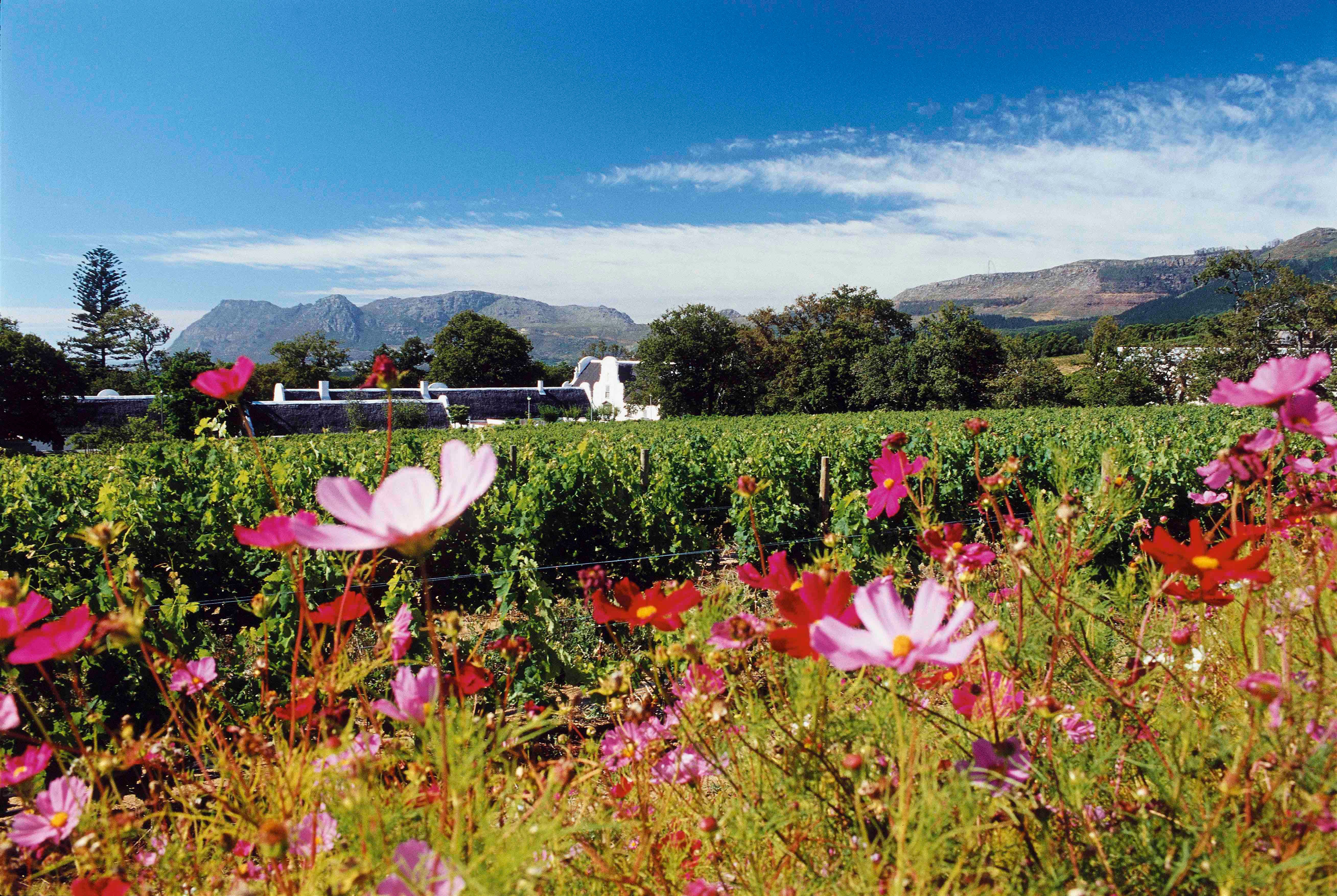This is the second time you have done the report. What lessons did you learn from the first iteration and what changes did you make to improve it and make it more thorough?
Colin Cameron (CC): The first issue of the Hallgarten Eco Standard was a big undertaking and took many months of research and refining to get to something that we felt was comprehensive in covering all aspects of our producers’ sustainability commitment. From the vineyard to the winery, to the business’s wider corporate, social and environmental responsibilities.
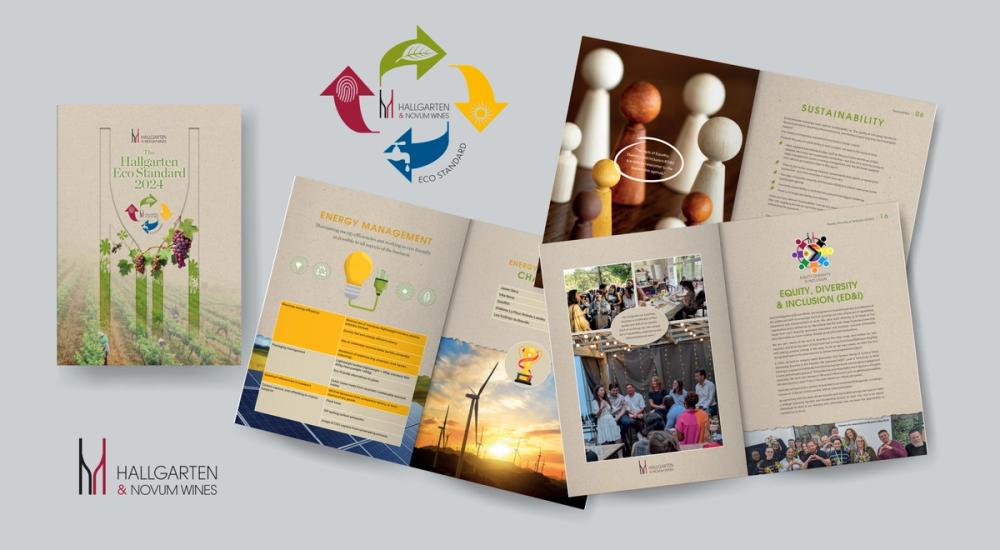
Hallgarten has seen big improvements across its producers in its secon Eco Standard report
Whilst the criteria remained the same this year, we focused additional efforts into showcasing the great work going on within the social responsibility pillar of the Eco Standard, and particularly around the important equity, diversity and inclusion topic. It also became clear that sometimes, even with the most well thought-out questions, sometimes a survey doesn’t explain the whole story, so our brand managers interviewed selected suppliers on ED&I so we could make sense of the numbers and the survey information better.
The report is based on a sustainability survey of your producer base -how long does it take to do the research and how do you decide what questions to ask wine-producing partners?
CC: This work began in 2022 for the original launch of the Eco Standard on World Environment Day –June 5 2023. The Eco Standard Team, originally a team of five members including Beverly Tabbron MW (and now a team of eight), researched the topic for six months, reviewing various sustainable accreditations around the world, which naturally take a more regional view of key sustainability topics relevant to the country in question.
Taking insight and inspiration from each, we sought to form a more global view of sustainability. The survey criteria and questions were then means-tested with a number of our sustainably-minded suppliers.
We produced specific, qualitative questions for our in-depth focus on ED&I, asking for examples from our suppliers to demonstrate their work in this area.
Once the responses had come back in, we made further enquiries if a producer had substantially changed their responses from one year to the other. And in many cases they had; improving on their previous position, which was great to see.
What have been the biggest changes you have seen between the two reports in terms of improvements and advances made by your producers?
JW: It has become clear that with our focus on the Hallgarten Eco Standard, our producers are taking (even more) seriously their sustainability plans and credentials – this is seen in the increases in responses from our suppliers (11%) and the 26% of suppliers who improved their score v 2023. This is a result of further investment from suppliers. However, being a long-term project, results are not seen in just one year. Producers are also getting better at communicating about sustainability: many shared a lot of detailed information on plans and certifications that we couldn’t include in the HES.
What have been the big areas of growth and improvements in terms of the steps that producers have been able to take?
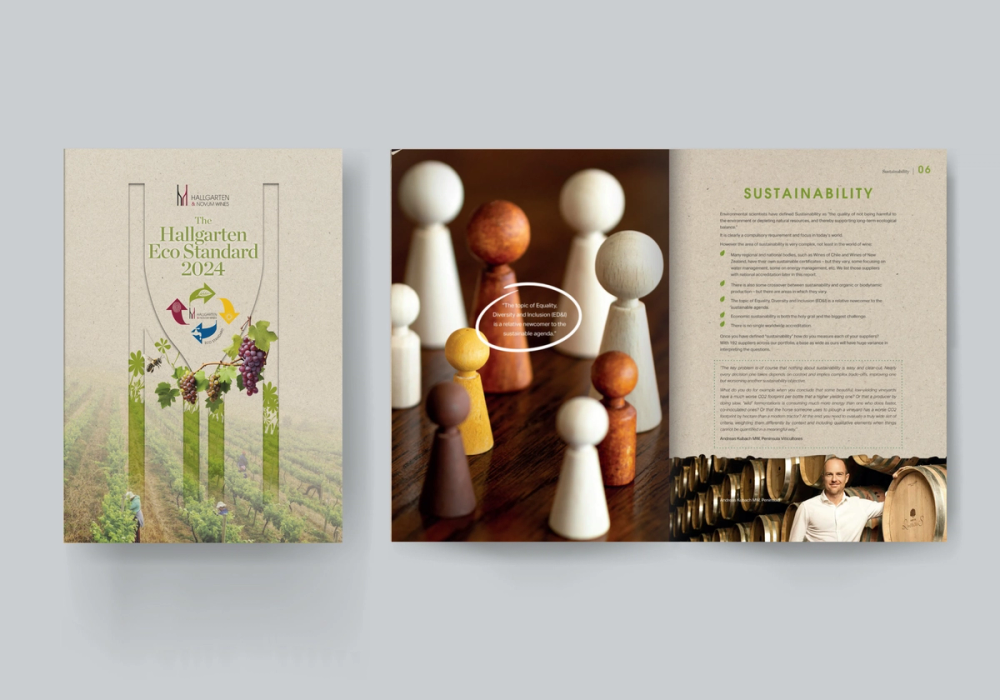
Hallgarten has seen standards raise across all four areas of sustainability that it measures with its producers
JW: We have seen improvement in all four criteria of the report and while the environment category (which saw scores increase by 19%) is the area with the highest scoring (potentially the most obvious sustainability topic), it is the other three criteria that have seen the greatest increase in scoring.
Both social responsibility and energy management saw a 23% increase in scores, while water and waste management saw increases of 22%.
This growth has seen improvements in practices such as reducing bottle weights, increased investment in employee schemes, and the reuse of water around the winery and vineyard.
What are the big outstanding areas and challenges that producers will need to tackle in the coming years and put of extra focus on?
JW: Wine producers do not have clear, standardised guidelines on sustainability, and this is a challenge. There is still a lot of misunderstanding about what sustainability is, and there are no universal rules and regulations.
The financial demands on sustainable winemaking are considerable, and against a backdrop of declining consumption, producers may find challenging in the future – these are businesses that pay wages at the end of the day and their spending must also be sustainable.
There are also demands from the wider trade that place additional challenges on producers – which require further investment. Examples are investments in more eco-friendly packaging and the calculations of emissions, with UK businesses becoming increasingly keen to understand the true emissions behind wines they list, for their own sustainability credentials.
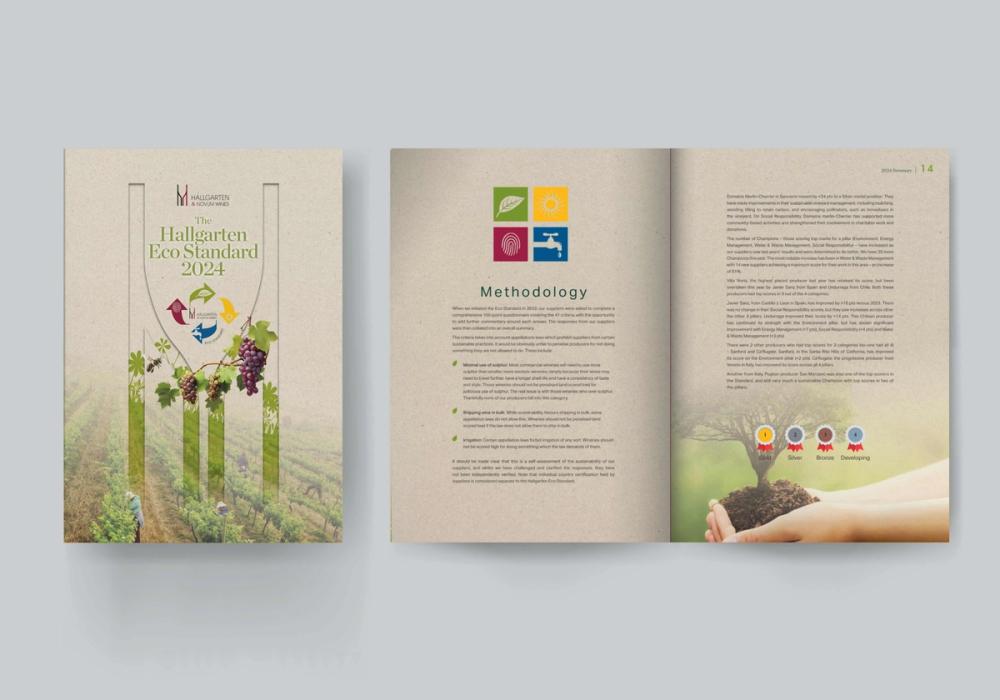
What do you do with this report in terms of how you work with your producers and use it in your day-to-day business?
CC: The report is used and referenced across many areas of the Hallgarten business, and all areas of our business have access to the HES ratings for each supplier.
We use the report within conversations with our producers, as an example of our commitment to sustainable practices, sharing best practice between producers, and encouraging them to push further in this globally critical topic. Our suppliers find the information highly valuable, offering insight in areas of sustainability they can improve upon.
In conversations with customers and prospects to demonstrate our commitment, and that of our suppliers, to sustainability. It also helps us to help them to make informed decisions about the wines they list.
HES ratings are featured within tasting books for company events, such as our annual tastings and regional tastings and customer tastings. And within our company communications, such as press releases and social media, content to maintain a clear focus on this important subject.
What steps, if any, do you take to help producers improve their sustainability credentials?
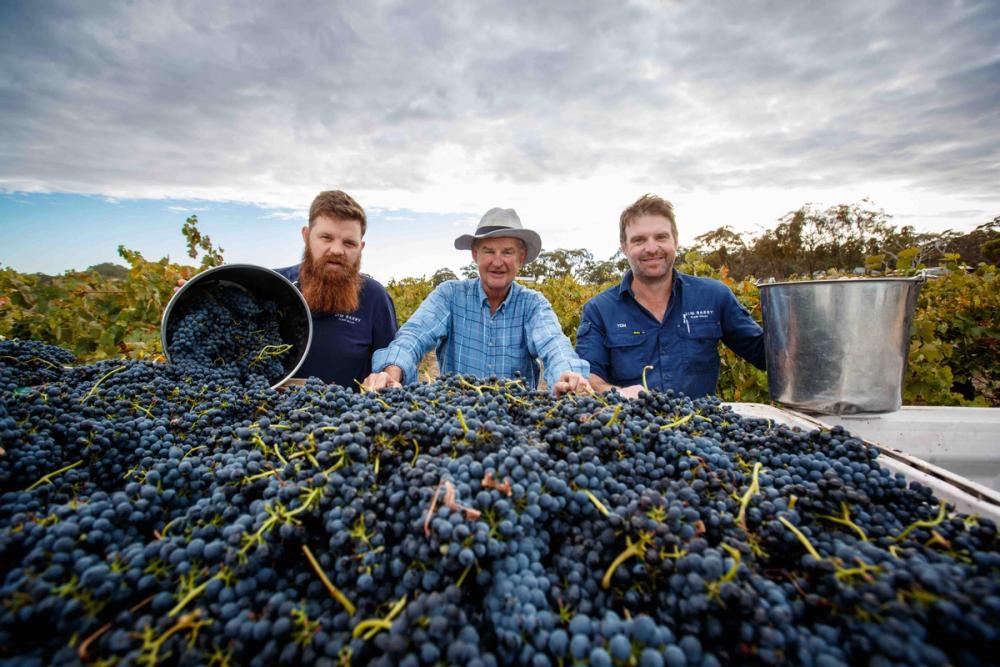
Hallgarten is looking to work hand-in-hand with its producers to help them raise their sustainability standards
JW: By gathering the insight on producer sustainability, we are able to share best practice among our suppliers. We found that this inspires and encourages our producers to strive for continuously improved sustainable practices.
Also, through sharing which information trends in the UK market – this can help our producers to understand what UK consumers value, such as ED&I. We found that many producers have practices in place that they do not shout about (until they realise that consumers care).
Do you have a set benchmark that producers have to reach in order to be a producer partner of yours - and do they have a deadline by which they have to do that?
JW: Our Supplier Code of Practice states that we encourage suppliers to apply for ISO14001, as it provides a framework for environmentally managed systems within their business.
Suppliers must also adhere to Hallgarten’s Environmental Policy & Ethical Statement, which requires assurances on areas such as recyclable packaging, non-renewable resources and modern slavery.
As a result, 60% of Hallgarten producers are committed to sustainability practises through a certification or HES rating Gold to Bronze, with many more involved in sustainable practices without recognised certification or achieving a Bronze HES level.
We are growing our portfolio in 2024, and virtually all the producers are leaders in their region on sustainability practices.
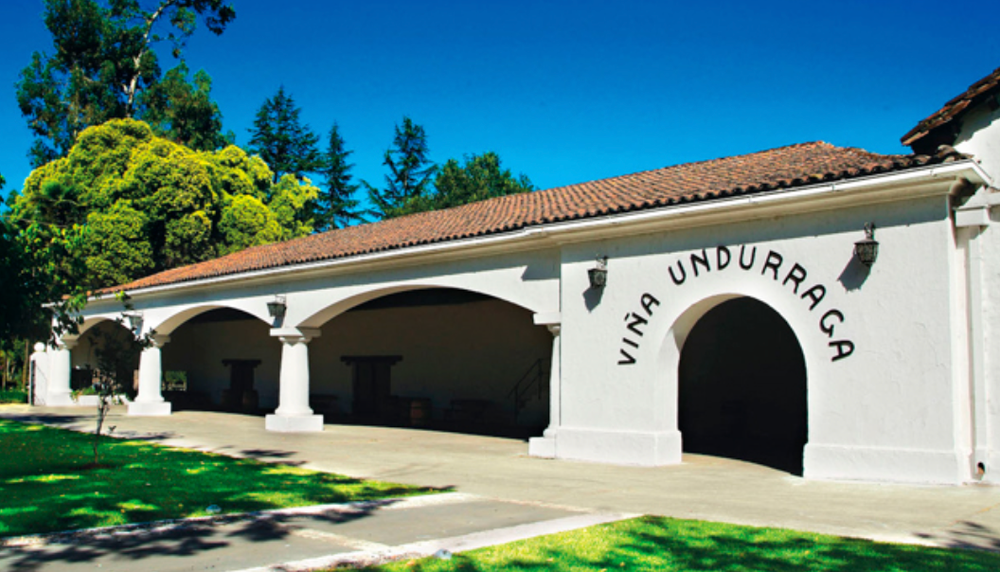
The highest-scoring producers in Hallgarten's Eco Standard report in 2024 were Viña Undurraga and Javier Sanz, both top-scoring in three out of four categories
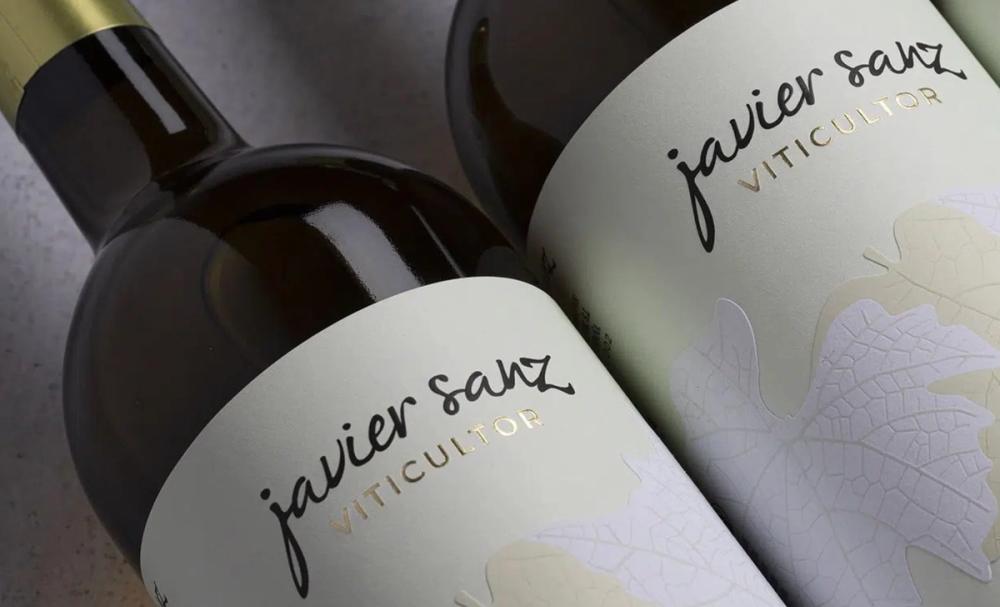
What have been the big steps that Hallgarten has taken itself to improve its sustainability in the last 12 months?
CC: In the last 12 months, we have become Corporate Carbon Neutral, based on our 2022 emissions and this is an area we continue to value and improve upon, with the goal of becoming Product Carbon Neutral. This will see even further analysis of our suppliers and their sustainability practices. We work closely with Carbon Footprint to assess and calculate our emissions and work towards improving this to achieve our goals of a 50% emission and ultimately Net Zero.
We continue our certification from ISO 14001 for environmentally managed systems which we have held since 2018.
Our in-house ‘Terroir Team’ continues their great work of ensuring that Hallgarten improves in all areas of our business. From recycling in the office and recycling corks through to surveying employees and communicating initiatives designed to save on emissions. The last year also saw us begin two new conservation partnerships with the Woodland Trust and Butterfly Conservation.
Through our ED&I, we have become the proactive leader of the ED&I agenda within the wine trade, which has seen work with key bodies and figures in the industry, such as Be Inclusive Hospitality
and Queena Wong (Curious Vines), as well as offering educational vineyard trips and WSET courses for minority groups in hospitality.
What are the next big steps you have to achieve?
CC: The topic of sustainability is ever-evolving, so the Hallgarten Eco Standard 2025 will see a re-evaluation of the process and questionnaire to ensure that the Eco Standard is as impactful and as relevant as possible moving forward. It is also essential we ensure all suppliers are taking on the journey of how we communicate their sustainability in the UK market – so those ‘Developing’ and ‘In Conversion’ are not left behind.
From a company perspective, to continue on our own sustainable goals of carbon neutrality and continually assessing where we can improve and support the wider trade.
* To find out more about Hallgarten & Novum Wines go to its website here.
* Hallgarten & Novum Wines is a commercial partner to The Buyer.
